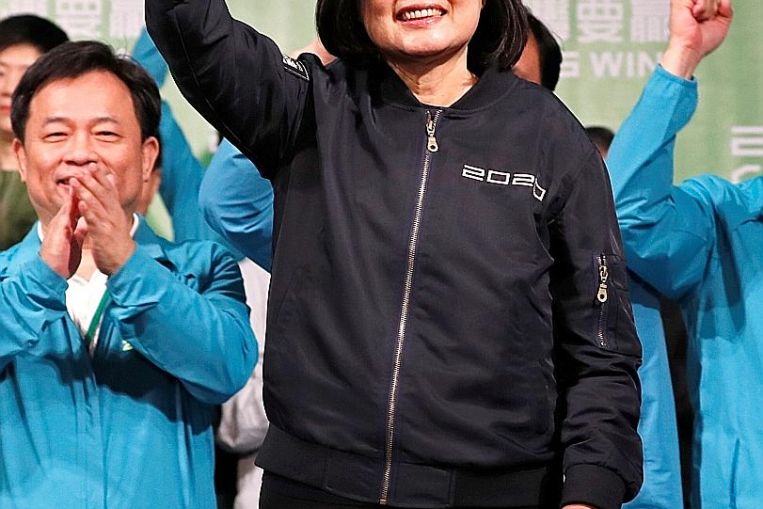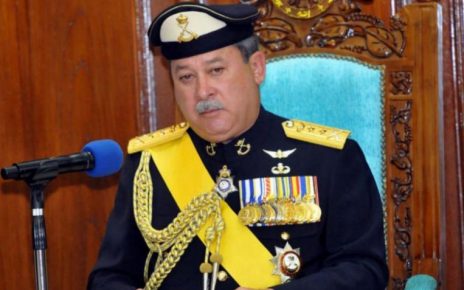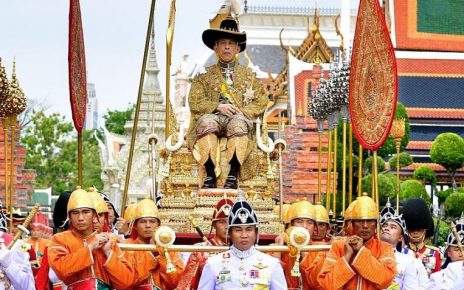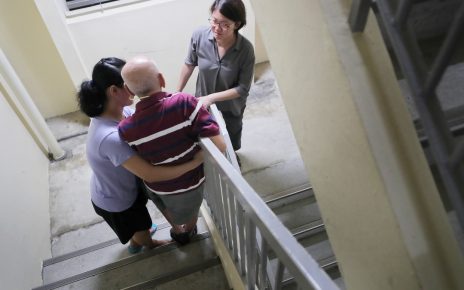
President Tsai Ing-wen from the pro-independence Democratic Progressive Party (DPP) called on China to abandon its threats of force against Taiwan after she won a second term in the election yesterday, saying the result was a clear signal that the Taiwanese people reject the “one country, two systems” formula.
Speaking shortly after her closest rival Han Kuo-yu conceded defeat last night, Ms Tsai also said cross-strait ties should be based on peace, parity, democracy and dialogue.
“I want the Beijing authorities to know that democratic Taiwan and our democratically elected government will never concede to threats,” she said.
Final results from the Central Election Commission showed Ms Tsai winning 57 per cent or 8.17 million votes, almost 20 percentage points more than Mr Han from the China-friendly Kuomintang (KMT), who won about 39 per cent or 5.52 million votes. Mr James Soong of the People First Party scored about 4 per cent or 609,000 votes. Voter turnout was 75 per cent, up from 66 per cent in 2016.
Ms Tsai broke former KMT president Ma Ying-jeou’s record of 7.65 million votes in 2008. She won the 2016 presidential election with more than 56 per cent of the votes to become the island’s first female president.
The DPP also retained its majority in the legislative elections yesterday, winning 61 of the 113 legislator seats, down from 68. The KMT secured 38 seats compared with 35 in 2016.
Ms Tsai’s handsome victory was a remarkable turnaround from a year ago when polls suggested that she would lose the election. But her popularity was buoyed by the months-long unrest in Hong Kong.
Many young Taiwanese are sympathetic towards the Hong Kong protesters and what they see as the loss of civil liberties in the former British colony under Chinese rule. They reject Beijing’s proposal to apply the “one country, two systems” formula to Taiwan.
The 63-year-old Ms Tsai said last night that China has to be “willing to recognise the way of living in Taiwan and recognise that the Republic of China exists”, using Taiwan’s official name. The comment was met with roars of approval from supporters.
Taiwan should also be given fair opportunities to participate in international affairs, said Ms Tsai, referring to how the island has been denied membership in a number of international bodies including the United Nations.
Addressing the Taiwanese people, she said: “No matter who you voted for, this is a display of Taiwan’s democracy and freedom… Taiwan is showing the world how much we cherish our free democratic way of life.”
Besides vowing to defend Taiwan’s sovereignty, she also promised to push for more reforms, including reducing the income gap and building a globalised work environment.
In conceding defeat, Mr Han, 62, who is Kaohsiung’s mayor, said: “The people have made their decision, and as candidates, we must respect the results. I can only say I haven’t worked hard enough.”
He also called on the island to put aside its differences. “We hope to see a united Taiwan,” he said.
The presidential election was dubbed the “battle between the generations” by local media, as the younger generation was behind Ms Tsai, while middle-aged and older voters formed the bulk of support for China-friendly Mr Han.
KMT chairman Wu Den-yih congratulated Ms Tsai on her re-election and said the party’s central management will discuss shouldering responsibility for the election defeat this week.
In Beijing’s first remarks on the election results, its Taiwan Affairs Office spokesman Ma Xiaoguang stressed that China “resolutely opposes separatist attempts and acts for ‘Taiwan independence’ in any form”.
But “we are ready to work with Taiwan compatriots to promote the peaceful development of cross-strait ties, and advance the process towards the peaceful reunification”.
The United States said Ms Tsai’s victory was a demonstration of the island’s “robust democratic system”.
Japanese Foreign Minister Toshimitsu Motegi said his country will work towards deepening cooperation with the island.



